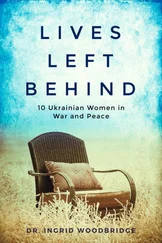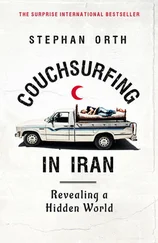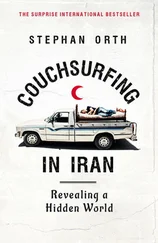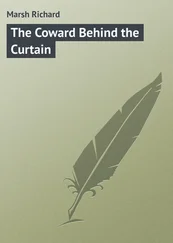FOR MOST PEOPLE,a vacation is the opposite of daily routine. Not for me; my vacation is in other people’s everyday lives. When I’m with my hosts I visit their local pubs, look through photos of their last holiday, hear about the stressful day they’ve had at the office or the separation of their best friend. Within two or three days I get to know a piece of the life history of someone who was previously a stranger.
And then there are bookshelves. I’m a self-confessed bookshelf voyeur, a practicing shelf analyst, a secret spine spy. I get a lot of fun out of creating spontaneous psychograms of people based on the reading material in their living rooms. It is, of course, appallingly unscientific. Who knows the reasons that individual books have landed there. But it is a lot of fun. In this respect Genrich leaves a highly educated impression; in his shelves you will find, on top of Jane Austen and Dostoyevsky, masses of travel guides, heavy scientific tomes on linguistics and biology, and books on ancient Greece.
I’m also a collector of stories, and so inquisitive about the next encounter that I’ve never experienced homesickness. Why should I? It’s exciting not knowing who is waiting for you behind the next door. As Forrest Gump might have said: couchsurfing is like a box of chocolates; you never know what you’re going to get.
For a coffee in the apartment of a Parisian student, I would gladly ignore the Eiffel Tower; an evening meal at home with a hippie family can be more rewarding than a five-course meal with a gourmet chef. While others get an adrenaline kick from bungee jumping off a bridge, I can sit on a public bus in a sinister suburb wondering whether I’m about to be greeted by a ritual murderer with a polished ax and a waiting acid bath. Such people do roam the internet, as one hears.
This funny old internet. The scope of the search functions on Couchsurfing.com is sometimes a little scary. Every day I log into a huge databank of people and filter them not only by locations but also by hobbies or keywords. How about a World of Warcraft gamer in Oslo? A tango dancer in Hong Kong? A nudist in Sydney? All are promptly served up from the website’s people-menu, and the only thing standing between you and the next three-day friendship is a friendly email.
Of course, this form of tourism is far more demanding than traveling all-inclusive to Punta Cana or pottering around the Mediterranean on a cruise ship. Couchsurfing is not about a purchasable product, not about travel as a consumer good, where later you can ask yourself whether you had enough fun, photo ops, sunshine, and relaxation for your money.
My encounters are real; there’s no stage management, just the mutual gift of time and curiosity. And for me that’s more valuable than anything else.

ACHIEVEMENTS OF THE NATIONAL ECONOMY
MY SECOND OUTINGin Moscow is to the VDNKh. Also known, slightly less cumbersomely, as the Exhibition of the Achievements of the National Economy.
In the old USSR days, the Communists put up exhibitions here—in over a hundred pavilions, with plenty of pomp and money—about the success of different countries of the Union and what specific branches of industry had achieved. Foreign delegations were shown around and “Heroes of Labor” from across the nation were celebrated with awards and money. Afterward they could return to their homes and tell of the grandeur of Moscow and of how all their drudgery had paid off.
After the fall of the Soviet Union the VDNKh also went into decline. The site was renamed the All-Russia Exhibition Center and capitalism entered the pavilions in the form of stores and market stalls. Consumer electronics, furs, honey, knitwear. The park facilities were neglected; once-mighty architectural monuments became ruins. A somehow symbolic development in the turbulent ’90s, when the whole country descended into chaos after the transition to a new system of government proved decidedly more complicated than optimists in the West had thought.
In 2014 the park became publicly owned and the mayor, Sergey Sobyanin, initiated a new strategy. Within days the market stalls were flattened; bulldozers and road rollers, builders and landscape gardeners were deployed to recreate the glory of bygone days. The majority of votes in an online poll were in favor of reinstating the old name of the site, and so once again it is called VDNKh. The result reflects the mood of the country: according to surveys the number of people regretting the breakup of the USSR has risen since 2013 and now stands at 56 percent.

On the way to the entrance stands the 350-foot-high “Monument to the Conquerors of Space”; depicting a launching rocket together with its exhaust plume, it is coated in titanium and glistens in the sun. Its pedestal consists of oversized relief scenes from the history of the cosmonauts. A small child in shorts and a polo shirt clambers around, first onto the paws of Laika, the first dog in space, and then moving on to the feet of Yuri Gagarin, the first man in space.
The park stretches across several hundred acres and is popular; there are plenty of families and couples wandering around. Renovations don’t seem to have been completed; a couple of men in neon reflective vests are fitting bulbs to the lampposts using an aerial platform. Beneath them are trees, still wrapped in plastic, waiting to be planted.
Shooting galleries and a Wild Mouse roller coaster await customers, as do caterers at snack stands with names like Giovanni’s Pizzas, Make My Day, and Noodle Mama. What the site map misleadingly terms “pavilions” are in fact temples. Temples to Communism, with pillar entrances, elaborate stucco decorations with imprinted Soviet stars, peasant sculptures, and a wide diversity of hammer and sickle symbols. At the entrances, posters advertise exhibitions on robots, Russian inventions, and modern art.
The most interesting structure is pretty much at the center of the site and is called the “Friendship of Peoples Fountain.” Sixteen gilded female figures with serious expressions are standing in a circle around the fountain. Each one represents one of the former Soviet republics, dressed in national costume, with an object typical of their particular republic. The Baltic States, Ukraine, Armenia, Georgia, Kazakhstan, and so on. Even if today they no longer belong together, the sculptures form a harmonious ensemble (though anyone who argues that at last count it was only fifteen republics is of course right; number sixteen represents the Karelo-Finnish Soviet Socialist Republic, which only existed until 1956). Today’s Russia is split into eight federal regions: Central Russia, Volga, South Russia, North Caucasus, Northwest Russia, Ural, Siberia, and Far East Russia. They in turn consist of oblasts, regions, republics, and autonomous districts.
At the edge of the fountain of unity of Soviet republics, icecream-eating city dwellers sit dipping their feet in the cool water while their children play tag. The fountain is full of coins: ten kopecks, fifty kopecks, and one ruble. How does the legend go again? Throw a coin over your shoulder and you’re sure to go back.
Truth No. 2:
Soviet nostalgia is trendy again.

THREE DAYS
NOBODY CAN GETmore worked up about Communism than my next host in Moscow, Vladimir. After three nights I move to his apartment as I don’t want to overstretch Genrich’s hospitality. Vladimir is a burly guy with intelligent, if somewhat tired-looking, blue eyes, and at sixty-three is roughly double the age of his predecessor. He has the unusual talent of being able to rant so flawlessly that during conversations you secretly wish to never return to positive topics. I quickly abandon counting how often he says “Oh, come on!” or “Fuck those bastards!” However, the words and sentences he slips in between swears testify to a keen mind; he’s an original thinker who refuses to kowtow to the State or the media.
Читать дальше
![Stephan Orth Behind Putin's Curtain: Friendships and Misadventures Inside Russia [aka Couchsurfing in Russia] обложка книги](/books/415210/stephan-orth-behind-putin-s-curtain-friendships-a-cover.webp)













